Yeap, I try to understand and I can explain this below:
There are 2 activities: ActivityA & ActivityB
public class ActivityA extends Activity implements OnClickListener {
// button
private Button mBtnChangeActivity;
@Override
protected void onCreate(Bundle savedInstanceState) {
super.onCreate(savedInstanceState);
setContentView(R.layout.activity_a);
initialize();
setEvent();
}
private void initialize() {
Log.i("Activity A", "Initialize()");
mBtnChangeActivity = (Button) findViewById(R.id.btn_change_activity);
}
private void setEvent() {
Log.i("Activity A", "setEvent()");
mBtnChangeActivity.setOnClickListener(this);
}
@Override
protected void onStart() {
super.onStart();
Log.i("Activity A", "onStart");
}
@Override
protected void onResume() {
super.onResume();
Log.i("Activity A", "onResume");
}
@Override
protected void onPause() {
super.onPause();
Log.i("Activity A", "onPause");
}
@Override
protected void onStop() {
super.onStop();
Log.i("Activity A", "onStop");
}
@Override
protected void onDestroy() {
super.onDestroy();
Log.i("Activity A", "onDestroy");
}
@Override
public void onClick(View v) {
switch (v.getId()) {
case R.id.btn_change_activity:
Intent activityB = new Intent(this, ActivityB.class);
startActivity(activityB);
break;
default:
break;
}
}
Here is activity B. Follow my comment in code
public class ActivityB extends Activity implements OnClickListener {
// button
private Button mBtnChangeActivity;
@Override
protected void onCreate(Bundle savedInstanceState) {
super.onCreate(savedInstanceState);
setContentView(R.layout.activity_a);
initialize();
setEvent();
// if call finish() here, activityA will don't stop, just pause
// Activity A will call onStop() when Activity B call onStart() method
finish();
}
private void initialize() {
Log.i("Activity B", "Initialize()");
mBtnChangeActivity = (Button) findViewById(R.id.btn_change_activity);
}
private void setEvent() {
Log.i("Activity B", "setEvent()");
mBtnChangeActivity.setOnClickListener(this);
}
@Override
protected void onStart() {
super.onStart();
Log.i("Activity B", "onStart");
}
@Override
protected void onResume() {
super.onResume();
Log.i("Activity B", "onResume");
}
@Override
public void onClick(View v) {
switch (v.getId()) {
case R.id.btn_change_activity:
finish();
break;
default:
break;
}
}
}
I hope this is clearly
